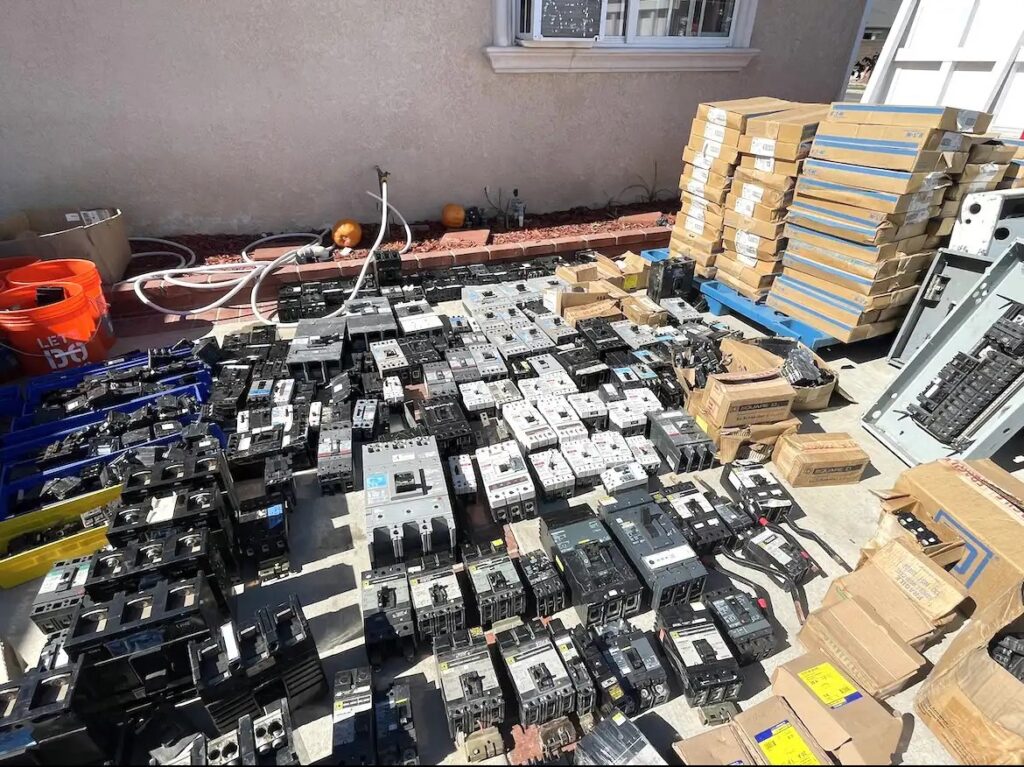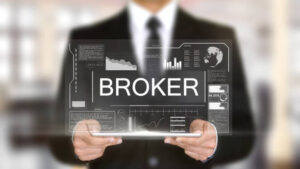
Across industries, organizations accumulate surplus electrical equipment over time, from upgrades, facility changes, or project completions. This excess gear represents untapped value, often left sitting idle in storage rooms or warehouses. Smart businesses are realizing that managing this surplus is more than just clearing space. The financial rewards are undeniable: immediate revenue, lower storage costs, and potential tax benefits.
The advantages extend beyond financial gains. Responsible equipment disposal reduces environmental impact and strengthens a company’s reputation. Rising regulatory pressures and growing consumer demand for sustainable practices have made monetizing surplus equipment a strategic function with significant business impact. Companies that implement effective surplus monetization programs not only recoup value from idle assets but also position themselves as responsible corporate citizens in an age where environmental and financial success go hand in hand.
Financial Benefits of Strategic Equipment Disposal
Converting surplus equipment into revenue presents compelling financial advantages beyond the obvious cash recovery. Strategic equipment disposal generates immediate capital while eliminating ongoing storage costs, which can be substantial when factoring in facility expenses, insurance, and inventory management. Many organizations overlook these holding costs, which silently erode profitability year after year.
Tax benefits represent another significant financial incentive. Depending on the jurisdiction, businesses may qualify for tax deductions when donating functional equipment to educational institutions or charitable organizations. Additionally, green certifications often qualify companies for government rebates and incentives, while simultaneously helping them avoid non-compliance penalties associated with improper disposal methods.
Resource recovery creates additional value streams. Recovering metals, plastics, and rare earth elements from equipment reduces future procurement costs. The economics are impressive: full e-waste recycling programs have demonstrated the ability to yield millions in labor income and tax revenue.
The financial benefits follow three primary paths:
- Direct revenue generation through the resale of equipment
- Cost avoidance through the elimination of storage expenses and disposal fees
- Tax advantages through strategic donations and sustainable disposal practices
These financial gains are measurable and significant, making surplus equipment monetization a value-creation opportunity rather than merely an operational necessity.
Revenue Generation Strategies
Implementing a comprehensive approach to monetizing surplus gear requires understanding the full spectrum of available options. Each strategy offers distinct advantages depending on equipment type, condition, and market dynamics.
Secondary market reselling represents the most direct monetization path. This approach works particularly well for specialized equipment with remaining useful life. Organizations can sell electrical equipment through various channels:
- Direct sales to end-users through industry networks
- Online marketplaces specializing in used industrial equipment
- Auction platforms for competitive bidding
- Equipment brokers who handle the entire sales process
Donation strategies provide both financial and social benefits. By donating functional equipment to schools, nonprofits, or small businesses, organizations:
- Qualify for tax deductions
- Avoid disposal costs
- Build community goodwill
- Strengthen their ESG profile
Component harvesting presents yet another viable option. Many surplus items contain valuable parts that can be extracted for maintenance of operational equipment, reducing the need for new purchases. The optimal approach often combines multiple strategies within a structured program.
Regulatory and Reputational Advantages
Establishing best practices for surplus equipment monetization delivers substantial regulatory and reputational benefits that directly impact the bottom line. As environmental regulations grow increasingly stringent, compliance becomes not just an ethical choice but a financial imperative.
Regulatory compliance through proper equipment disposal prevents costly fines and penalties. Many jurisdictions have implemented strict requirements regarding waste management, particularly for electronic equipment containing hazardous materials. Forward-thinking organizations view these regulations not as obstacles but as opportunities to implement systems that both ensure compliance and generate value. By properly documenting disposal activities, companies create an audit trail that demonstrates regulatory adherence and environmental responsibility.
Employee engagement represents another significant benefit. Staff members increasingly seek employers whose values align with their environmental concerns. Organizations with visible sustainability initiatives report:
- Higher employee retention rates
- Improved recruitment outcomes
- Increased workplace satisfaction
- Stronger organizational culture
The combination of regulatory compliance and enhanced reputation creates a compelling business case for strategic surplus management. By implementing effective programs, organizations protect themselves from compliance issues while simultaneously building brand value that translates to a competitive advantage in both consumer and capital markets.
Implementation Considerations and Best Practices
Creating an effective surplus monetization program requires careful planning and systematic implementation. Organizations must address several key considerations to maximize returns while managing potential challenges.
The initial investment represents the most significant hurdle. Establishing proper infrastructure for sorting, testing, and refurbishing equipment requires upfront capital. However, well-designed programs typically achieve positive ROI within months rather than years.
Material limitations present another challenge. Not all components are easily recyclable or have ready secondary markets. Creating a detailed inventory assessment process helps identify which items offer monetization potential versus those requiring special handling. This segmentation ensures maximum value recovery from viable items while guaranteeing proper disposal of problematic materials.
Best practices for implementation include:
- Conduct equipment audits – Regularly inventory surplus gear to prevent accumulation and identify monetization opportunities early
- Establish valuation protocols – Develop consistent methods for determining equipment value
- Build partner networks – Forge relationships with reputable recyclers, resellers, and donation recipients
- Document chain of custody – Maintain detailed records of all equipment disposition for compliance purposes
- Measure and report results – Track financial and environmental outcomes to demonstrate program value
United Industries can support this implementation by providing comprehensive disposal services that address both value recovery and compliance requirements.
Conclusion
Monetizing surplus equipment represents a significant opportunity for organizations to recover capital while advancing sustainability goals. Throughout this exploration of strategies and benefits, we’ve seen how properly managed disposal programs generate immediate revenue, reduce costs, ensure compliance, and enhance reputation. The financial case is compelling, with documented examples of organizations saving hundreds of thousands annually through strategic equipment management.
By implementing a systematic approach to sell surplus electrical equipment and other excess assets, businesses transform what was once considered a disposal problem into a value-creation opportunity. The challenges of initial investment and material limitations are far outweighed by the potential returns, both financial and reputational.
United Industries stands ready to help organizations implement comprehensive surplus monetization programs that maximize value recovery while ensuring environmental responsibility. Take the first step today by conducting an equipment audit to identify monetization opportunities within your organization.
FAQ
What types of equipment typically have the highest resale value?
Specialized technical equipment in good working condition generally commands the highest prices in secondary markets. Items with remaining useful life that would be expensive to purchase new offer the best monetization opportunities.
How do we determine if equipment should be resold, donated, or recycled?
This decision depends on factors including equipment age, condition, market demand, and potential tax benefits. Generally, newer functioning equipment is best for resale, older functioning equipment for donation, and non-functioning items for recycling or parts recovery.
What documentation should we maintain for equipment disposal?
Maintain records of equipment specifications, condition assessments, chain of custody, disposal method, and any revenue or tax benefits received. This documentation supports both compliance requirements and financial reporting.





